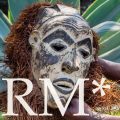In the context of Latin American and Caribbean countries, it heralded a wave of transformations in the field of culture and cultural institutions.
The Round Table saw the conception of the ‘integral museum’.
It represented a call for the practices and experiences developed in the colonised countries of the Global South to be recognised in all their transformative and liberating power, and in the face of dominant agendas and theories.
The integral museum calls on museums to fulfil their social, humanitarian and environmental duties; but it also recognises the role and agency of social movements in penetrating the cultural fields, and the identity conflicts which mark decades of repression and authoritarianism in many countries in the region.
Since 1972, museums have re-integrated themselves into societies by incorporating the perspectives and voices of various social groups; and museology has committed itself to diverse movements and identities which resist both the status quo and dominating ideologies.


